As one of the largest sports events in the world, World Cup has had the world falling in love with its world-class football match. This is an event where all the best football teams around the world muster up and show off what the best they have. Therefore, they leave a plethora of incredible and indelible moments that football lovers cherish for years.
However, this big sports event is not immune to controversy. When international football teams competed together, they were prone to do anything to win this “biggest match of their life”. That triggers much blatant auditioning and guilt during the match. Besides, political elements sometimes have a huge impact on the match, making it more dramatic than sporty.
In this post, we’ve curated 10 notorious controversies of the World Cup since it started. From the infamous Diego Maradona’s “Hand Of God” to the battle of Santiago, they will shock you a fair bit. Scroll down and check them out!
Schumacher and French defender Patrick Battiston raced after a long through ball from Michel Platini during the semifinal game with France. First, to the ball, Battiston was clattered by Schumacher, who also rendered the Frenchman unconscious. He lost two teeth, split three ribs, and fractured his spine while receiving oxygen on the field.
Unbelievably, there was no call for a foul. Battiston was substituted, and Schumacher took the ensuing goal kick. West Germany eventually prevailed in the game on penalties and advanced to the championship game. Despite his insistence that it wasn't a foul and that he was simply attempting to get the ball, Schumacher did visit Battiston in the hospital and apologize.
Benito Mussolini, however, gave the Italian footballers the explicit command to wear black uniforms. If they weren't connected to the notorious Italian fascist paramilitary, it wouldn't be a problem. The show simply served to inflame the already-hostile feelings of the French audience and populace toward fascist Italy. But the imposing Italians won that World Cup and held the title for a further 12 years.
Maradona jumped to confront England goalkeeper Peter Shilton for a high ball in the 51st minute. Knowing he was much shorter than Shilton, Maradona used his left hand to get to the ball first and knock it into the goal. Everybody can blatantly spot that, yet the referee allowed the goal, and Argentina led 1-0. They won that match thereafter, and also became the champion of the year.
As soon as the goal was scored, Maradona dubbed it "The Hand of God." Although Maradona passed away, his moment, especially his “Hand of God” is still alive.
The first foul was committed just 12 seconds into the game, and Honorino Landa was dismissed from the game in the 12th minute after refusing to leave the field.
The game kept going in the same manner. Leonel Sanchez of Chile punched Mario David of Italy, but he was not dismissed. A few minutes later, the Italian right-back was kicked out of the game for attempting to kick Sanchez in the head as payback. Sanchez got engaged once more, this time breaking Humberto Maschio's nose while remaining on the field. The remainder of the game, which Italy won 2-0, was marked by brawls, spitting, and three additional.
This is such an infamous match in World Cup history. BBC commentator David Coleman even regarded the game as "the most stupid, appalling, disgusting, and disgraceful exhibition of football, possibly in the history of the game."
Argentina needed to defeat a talented Peru team by at least four goals in order to get to the final. This was odd given that Peru had thrashed both Scotland and Iran in their opening group games in addition to drawing 0-0 with the Netherlands. Argentina eventually defeated the Peruvians by a score of 6, but the result was a capitulation. The outcome was viewed as a shame around the world, despite Ramon Quiroga, the goalie for Peru who was born in Argentina, defending his team's honor.
Years later, a Peruvian lawmaker alleged the game was rigged as part of a trade agreement between the two South American countries. Shenanigans were also suspected before and during the final against the Netherlands. The Dutch squad was escorted on a scenic path to the stadium before the game and forced to wait on the pitch in front of a hostile crowd as their opponents arrived five minutes late.
The Argentine FA had also succeeded in having the referee replaced with an Italian, Sergio Gonella. During the game, he appeared to have little control, and several 50/50 decisions went Argentina's way. Argentina's players also complained about Rene van de Kerkhof's forearm plaster cast, which required an additional layer of bandaging. He'd been wearing it throughout the competition, but it didn't appear to be a problem until now. Argentina went on to win the championship 3-1 in extra time, but whether their antics influenced the Dutch performance is debatable.
Francesco Totti was given a red card for alleged diving by referee Byron Moreno in the quarterfinal matchup with Italy. Moreno also disallowed a legitimate goal. Plenty of violent crimes were also committed by Koreans without any consequences. The golden goal rule helped South Korea win, which is not surprising. Similar circumstances occurred in the quarterfinal against Spain, as the European side was denied two clear goals by the referee. Due to match-fixing and bribes, both referees were soon forced to retire.
West Germany and Austria, on the other hand, undoubtedly struck a deal to end their match with a result that will send both teams to the elimination round. As a result, both teams accomplished almost nothing from the tenth minute onward after West Germany gained the lead. Algeria was eliminated as a result, and a new regulation was added to the World Cup. Sadly, this conspiracy isn't just another false FIFA World Cup rumor.
The ball smacked into the crossbar, fell to the ground, and eventually escaped the net. The referees first disagreed, but the goal was ultimately deemed legitimate. As a result, England gained the upper hand and won the World Cup that year. Was it a goal, then? The English assert as much, but there is no agreed-upon answer.
Graham Poll, an English official, issued Simunic a yellow card for fouling Harry Kewell in the 61st minute of a group match between Croatia and Australia. In the 90th minute, for another foul on Kewell, he was given his second yellow card, but not a red.
In the 93rd minute, Simunic received the third caution, and this time Poll decided to send him out. For the remainder of the competition, Poll was taken out of the referee pool, and he later announced his retirement from international refereeing.
The first-round victory by Yugoslavia over Brazil caused a sensation, and the hosts didn't want to experience the same destiny. As a result, after a policeman booted the ball back onto the field, Uruguay scored its second goal. In the end, Uruguay trounced Argentina 6-1 to win the match.
However, this big sports event is not immune to controversy. When international football teams competed together, they were prone to do anything to win this “biggest match of their life”. That triggers much blatant auditioning and guilt during the match. Besides, political elements sometimes have a huge impact on the match, making it more dramatic than sporty.
In this post, we’ve curated 10 notorious controversies of the World Cup since it started. From the infamous Diego Maradona’s “Hand Of God” to the battle of Santiago, they will shock you a fair bit. Scroll down and check them out!
#1 Schumacher vs Battiston
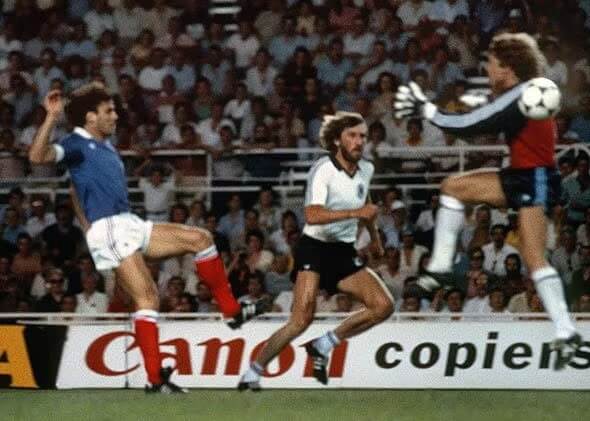 Source: Getty Images
Source: Getty Images
Schumacher and French defender Patrick Battiston raced after a long through ball from Michel Platini during the semifinal game with France. First, to the ball, Battiston was clattered by Schumacher, who also rendered the Frenchman unconscious. He lost two teeth, split three ribs, and fractured his spine while receiving oxygen on the field.
Unbelievably, there was no call for a foul. Battiston was substituted, and Schumacher took the ensuing goal kick. West Germany eventually prevailed in the game on penalties and advanced to the championship game. Despite his insistence that it wasn't a foul and that he was simply attempting to get the ball, Schumacher did visit Battiston in the hospital and apologize.
#2 Italy's Fascist Attire
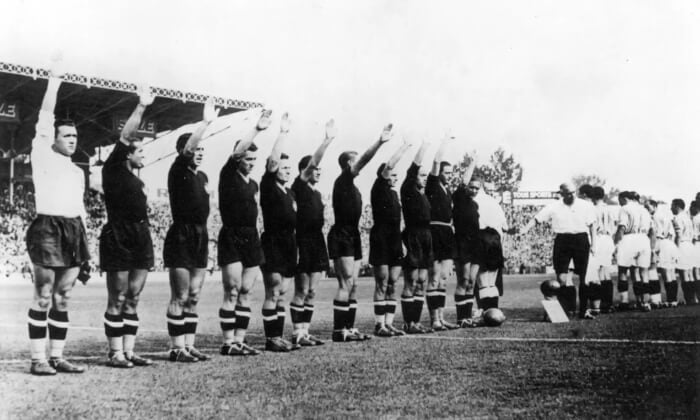 Source: Schirner Sportfoto/DPA/PA Images
Source: Schirner Sportfoto/DPA/PA Images
Benito Mussolini, however, gave the Italian footballers the explicit command to wear black uniforms. If they weren't connected to the notorious Italian fascist paramilitary, it wouldn't be a problem. The show simply served to inflame the already-hostile feelings of the French audience and populace toward fascist Italy. But the imposing Italians won that World Cup and held the title for a further 12 years.
#3 Hand of God
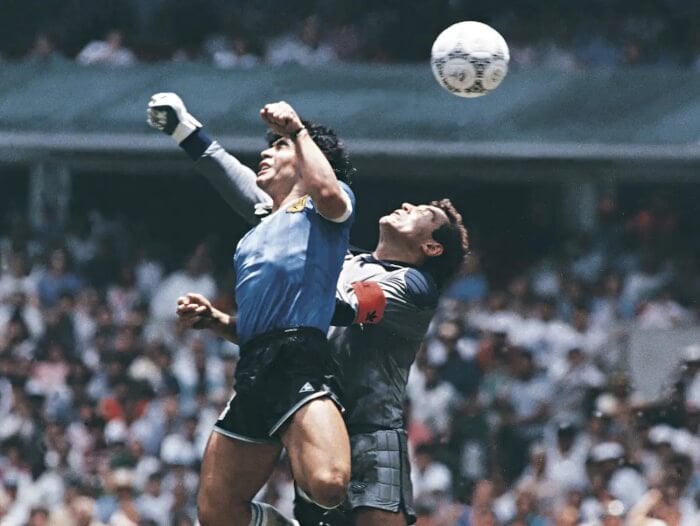 Source: Getty Images
Source: Getty Images
Maradona jumped to confront England goalkeeper Peter Shilton for a high ball in the 51st minute. Knowing he was much shorter than Shilton, Maradona used his left hand to get to the ball first and knock it into the goal. Everybody can blatantly spot that, yet the referee allowed the goal, and Argentina led 1-0. They won that match thereafter, and also became the champion of the year.
As soon as the goal was scored, Maradona dubbed it "The Hand of God." Although Maradona passed away, his moment, especially his “Hand of God” is still alive.
#4 Battle of Santiago
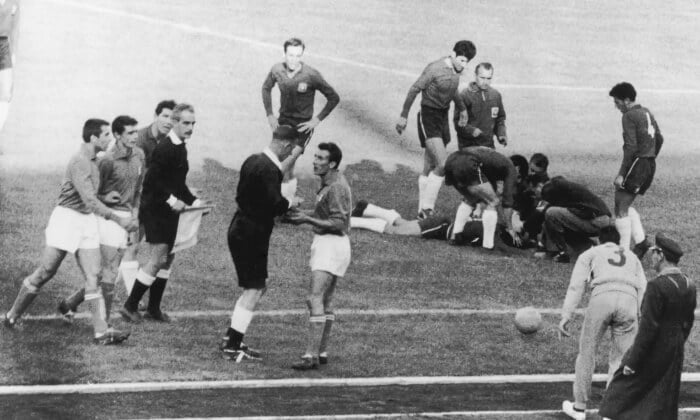 Source: Getty Images
Source: Getty Images
The first foul was committed just 12 seconds into the game, and Honorino Landa was dismissed from the game in the 12th minute after refusing to leave the field.
The game kept going in the same manner. Leonel Sanchez of Chile punched Mario David of Italy, but he was not dismissed. A few minutes later, the Italian right-back was kicked out of the game for attempting to kick Sanchez in the head as payback. Sanchez got engaged once more, this time breaking Humberto Maschio's nose while remaining on the field. The remainder of the game, which Italy won 2-0, was marked by brawls, spitting, and three additional.
This is such an infamous match in World Cup history. BBC commentator David Coleman even regarded the game as "the most stupid, appalling, disgusting, and disgraceful exhibition of football, possibly in the history of the game."
#5 Argentina Fixed Their World Cup
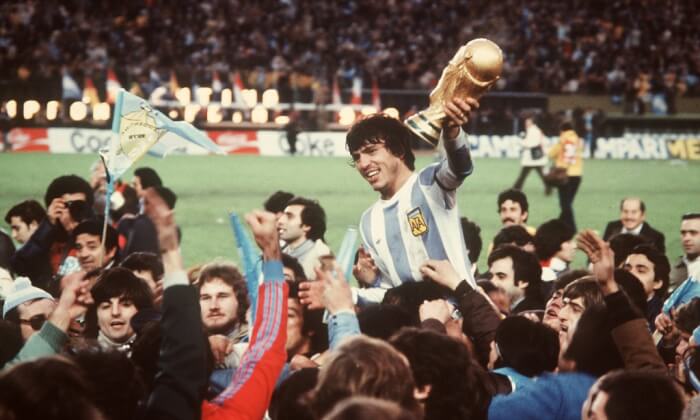 Source: DPA/PA
Source: DPA/PA
Argentina needed to defeat a talented Peru team by at least four goals in order to get to the final. This was odd given that Peru had thrashed both Scotland and Iran in their opening group games in addition to drawing 0-0 with the Netherlands. Argentina eventually defeated the Peruvians by a score of 6, but the result was a capitulation. The outcome was viewed as a shame around the world, despite Ramon Quiroga, the goalie for Peru who was born in Argentina, defending his team's honor.
Years later, a Peruvian lawmaker alleged the game was rigged as part of a trade agreement between the two South American countries. Shenanigans were also suspected before and during the final against the Netherlands. The Dutch squad was escorted on a scenic path to the stadium before the game and forced to wait on the pitch in front of a hostile crowd as their opponents arrived five minutes late.
The Argentine FA had also succeeded in having the referee replaced with an Italian, Sergio Gonella. During the game, he appeared to have little control, and several 50/50 decisions went Argentina's way. Argentina's players also complained about Rene van de Kerkhof's forearm plaster cast, which required an additional layer of bandaging. He'd been wearing it throughout the competition, but it didn't appear to be a problem until now. Argentina went on to win the championship 3-1 in extra time, but whether their antics influenced the Dutch performance is debatable.
#6 South Korea Fixed Matches
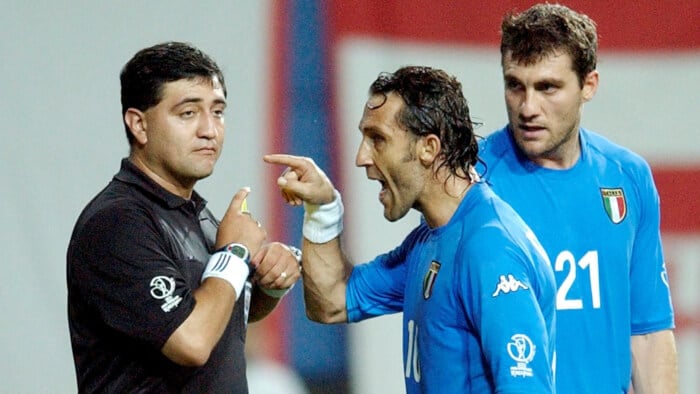 Source: LaPresse
Source: LaPresse
Francesco Totti was given a red card for alleged diving by referee Byron Moreno in the quarterfinal matchup with Italy. Moreno also disallowed a legitimate goal. Plenty of violent crimes were also committed by Koreans without any consequences. The golden goal rule helped South Korea win, which is not surprising. Similar circumstances occurred in the quarterfinal against Spain, as the European side was denied two clear goals by the referee. Due to match-fixing and bribes, both referees were soon forced to retire.
#7 The Conspiracy Against Algeria
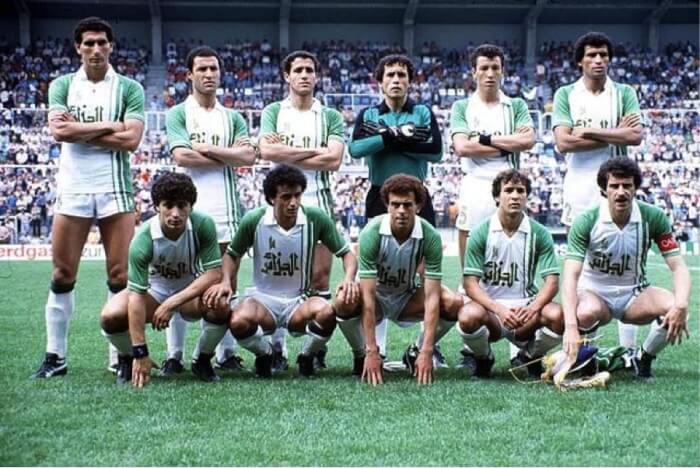 Source: Imperial & Global Forum
Source: Imperial & Global Forum
West Germany and Austria, on the other hand, undoubtedly struck a deal to end their match with a result that will send both teams to the elimination round. As a result, both teams accomplished almost nothing from the tenth minute onward after West Germany gained the lead. Algeria was eliminated as a result, and a new regulation was added to the World Cup. Sadly, this conspiracy isn't just another false FIFA World Cup rumor.
#8 Crossing The Line
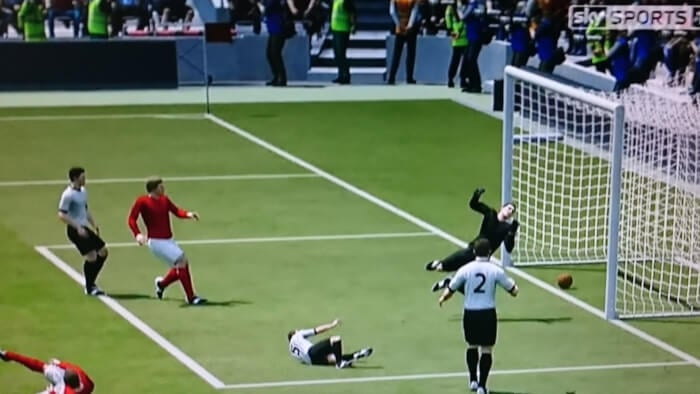 Source: Sky Sports
Source: Sky Sports
The ball smacked into the crossbar, fell to the ground, and eventually escaped the net. The referees first disagreed, but the goal was ultimately deemed legitimate. As a result, England gained the upper hand and won the World Cup that year. Was it a goal, then? The English assert as much, but there is no agreed-upon answer.
#9 Three Yellow Cards
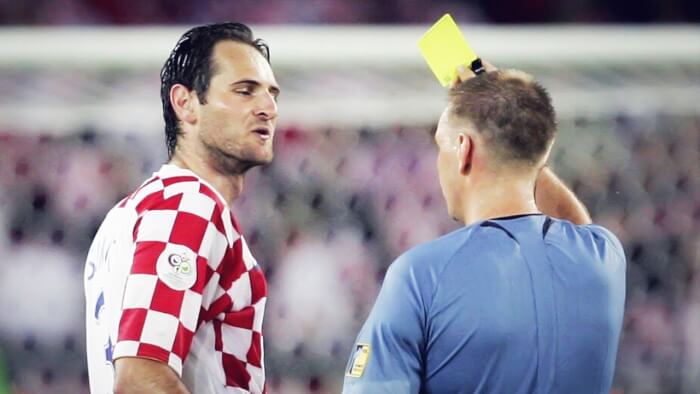 Source: Youtube
Source: Youtube
Graham Poll, an English official, issued Simunic a yellow card for fouling Harry Kewell in the 61st minute of a group match between Croatia and Australia. In the 90th minute, for another foul on Kewell, he was given his second yellow card, but not a red.
In the 93rd minute, Simunic received the third caution, and this time Poll decided to send him out. For the remainder of the competition, Poll was taken out of the referee pool, and he later announced his retirement from international refereeing.
#10 Montevideo Scandal
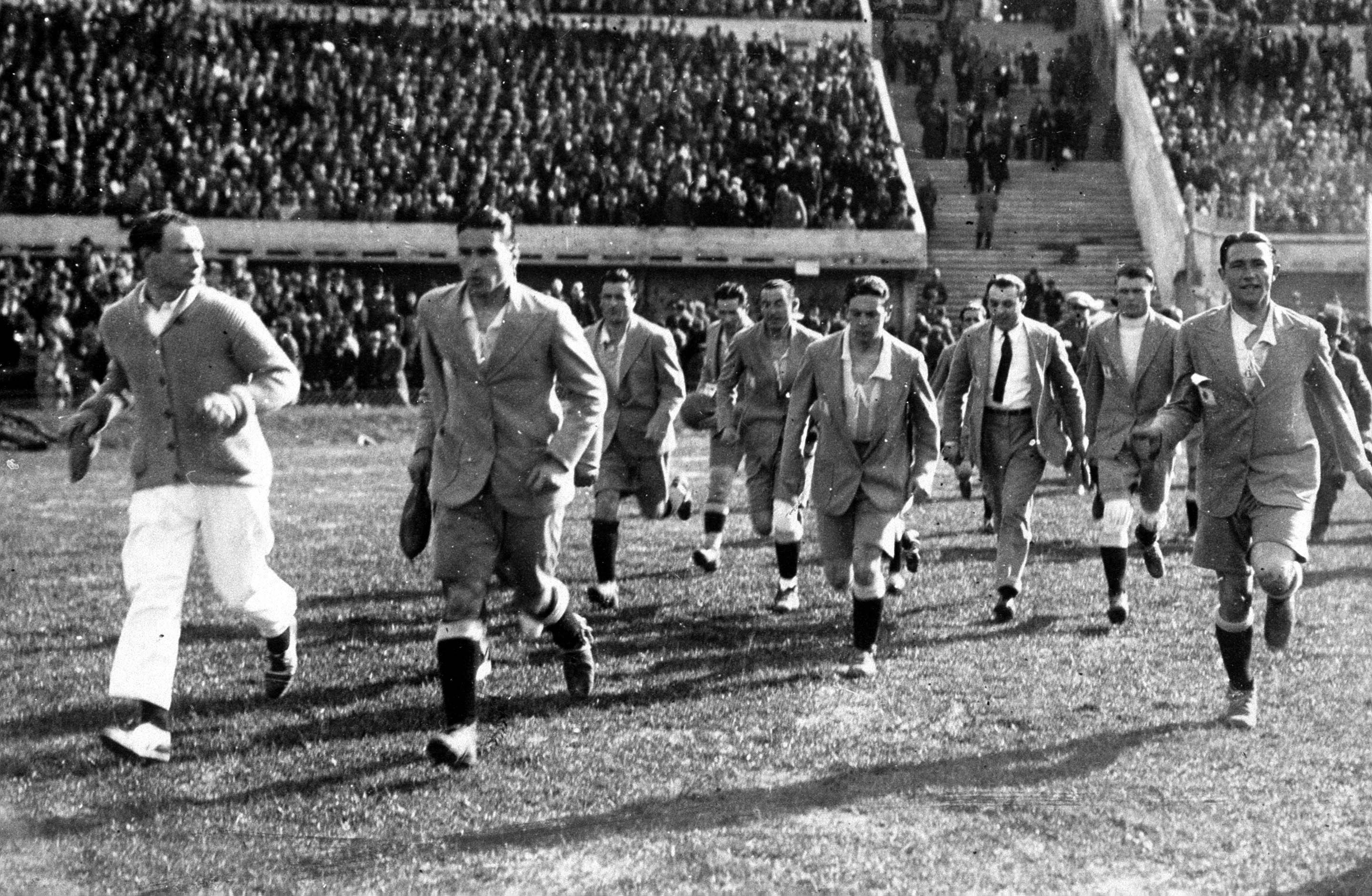 Source: Fifa
Source: Fifa
The first-round victory by Yugoslavia over Brazil caused a sensation, and the hosts didn't want to experience the same destiny. As a result, after a policeman booted the ball back onto the field, Uruguay scored its second goal. In the end, Uruguay trounced Argentina 6-1 to win the match.